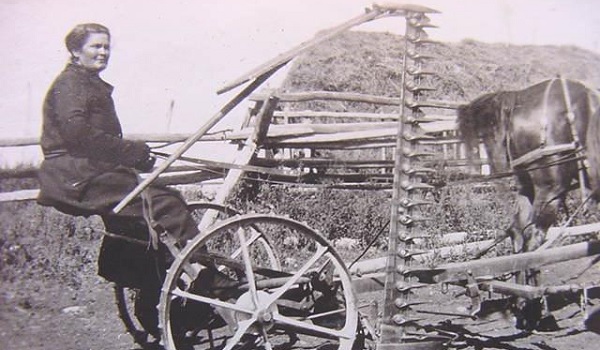Podcast: Play in new window | Download
Subscribe: Apple Podcasts | Spotify | RSS | More

Burnt Fork, Wyoming
April 18, 1909Dear Mrs. Coney,
…
There is a saddle horse especially for me and a little shotgun with which I am to kill sage chickens. We are between two trout streams, so you can think of me as being happy when the snow is through melting and the water gets clear. We have the finest flock of Plymouth Rocks and get so many nice eggs. It sure seems fine to have all the cream I want after my town experiences. Jerrine is making good use of all the good things we are having. She rides the pony to water every day.I have not filed on my land yet because the snow is fifteen feet deep on it, and I think I would rather see what I am getting, so will wait until summer. They have just three seasons here, winter and July and August. We are to plant our garden the last of May. When it is so I can get around, I will see about land and find out all I can and tell you.
…
Sincerely yours,
Elinore Rupert
In March 1909, Elinore Rupert moved from Denver, Colorado to Burnt Fork, Wyoming to be a housekeeper for widowed homesteader Clyde Stewart. The Homestead Act of 1862 gave tracts of land to male citizens, widows, single women, and immigrants who pledged to become citizens; Rupert hoped to have a homestead of her own someday.
After moving, Rupert began a years-long correspondence with her former employer, Mrs. Juliet Coney, a widowed schoolteacher. The letters would eventually be published in the Atlantic Monthly, and then in a book. Over several episodes, we’ll hear Rupert’s own words about her adventures in Wyoming.
Rupert’s letters are in the Public Domain.